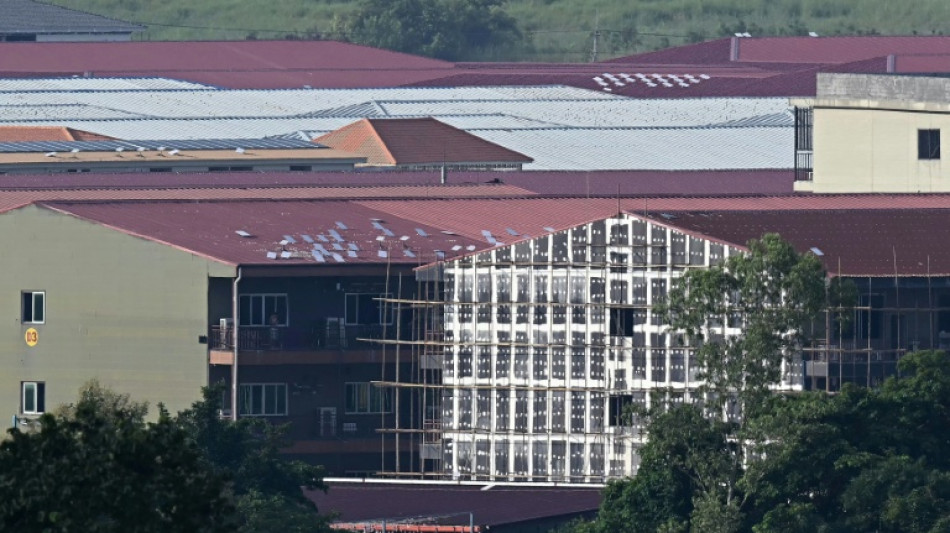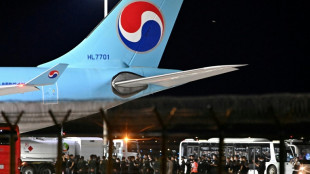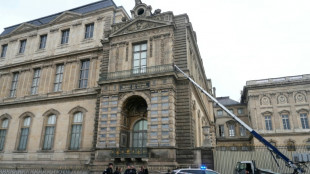

Myanmar junta says seized 30 Starlink receivers in scam centre raid
Myanmar's junta raided one of the country's most notorious cyberscam centres and seized Starlink satellite internet devices, it said Monday, after an AFP investigation revealed an explosion in their use in the multibillion-dollar illicit industry.
Internet sweatshops where workers scam unsuspecting foreigners with business or romance schemes have thrived in war-ravaged Myanmar's lawless border regions since the coronavirus pandemic shut down casinos operating in the area.
A crackdown by Thai, Chinese and Myanmar authorities starting in February saw thousands of suspected scammers repatriated, with experts saying some in the scam industry participate willingly while others are forced to by organised criminal groups.
But an AFP investigation this month revealed rapid new construction at scam centre sites and devices using Elon Musk-owned satellite internet service Starlink being installed on their roofs.
State media The Global New Light of Myanmar said the military "conducted operations in KK Park near Myanmar-Thai border" and had "seized 30 sets of Starlink receivers and accessories".
That number is only a fraction of the Starlink devices AFP identified using satellite imagery and drone photography. On the roof of one building alone in KK Park, images showed nearly 80 of the internet dishes.
Starlink, which is not licensed in Myanmar, did not have enough traffic to make it onto the list of the country's internet providers before the sweeping February crackdown.
But it topped the ranking every day from July 3 until October 1, according to data from the Asian regional internet registry, APNIC.
The US Congress Joint Economic Committee told AFP they have begun an investigation into Starlink's involvement with the centres. While it can call Musk to a hearing, it cannot compel him to testify.
Starlink parent company SpaceX did not immediately respond to a request for comment on Monday.
- Thriving scams -
The Global New Light of Myanmar also said junta troops had occupied around 200 buildings and found nearly 2,200 workers at the site, while 15 "Chinese scammers" had been arrested for involvement in "online gambling, online fraud and other criminal activities" around KK Park.
Southeast Asian scam operations conned people out of $37 billion in 2023, according to a report by the UN Office on Drugs and Crime.
While Myanmar has emerged as a focal point of scam centres in Southeast Asia, they have also flourished elsewhere in the region.
Last week, Cambodia deported 64 South Koreans detained for alleged involvement in cyberscams there, with most now facing arrest warrants back home.
Scam centres are a key part of Myanmar's black market economy alongside drug production and mining, filling the war chests of factions fighting in the country's civil war which was sparked by a 2021 military coup.
The border region fraud factories are typically run by Chinese criminal syndicates, analysts say, often overseen by Myanmar militias given tacit backing by the Myanmar junta in return for guaranteeing security.
However, their allegiances have shifted as international pressure has been brought to bear.
China led the push on authorities in Myanmar and Thailand to crack down in February after Chinese actor Wang Xing said he was lured to Thailand for a fake casting and trafficked into a scam centre in Myanmar.
Nonetheless satellite images show what appear to be office and dormitory blocks shooting up in many of the estimated 27 scam centres located along a winding stretch of the Moei River on the Thai-Myanmar border.
While some scam workers are clearly trafficked into the centres, experts say others go voluntarily to secure huge pay packets.
Beijing said last week it has arrested more than 57,000 Chinese nationals suspected of committing fraud in its crackdown on cross-border crimes in Myanmar.
(T.Dladla--TPT)




